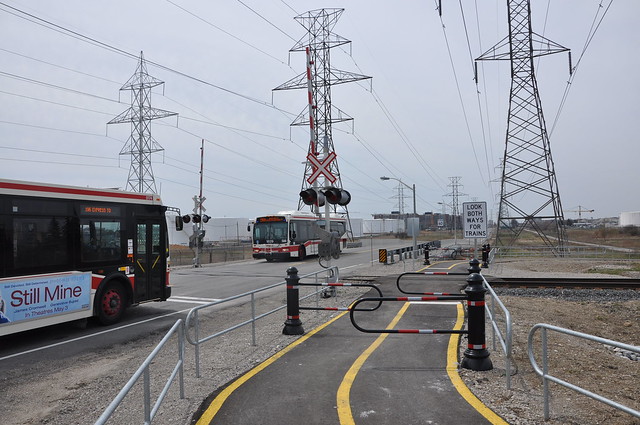2007
October: The city of Montreal asks Stationnement de Montréal, the private company that runs the city’s parking operations, to set up a bike-sharing service. “No disbursements are expected for the city,” the executive committee says.
2008
August: The Bixi name is born, combining bike and taxi. Forty prototypes hit the road in a pilot project.
2009
May: Bixi launches in Montreal. The first major bike-sharing system in North America, it features 3,000 bikes and 300 stations. Membership is $78 per year. It’s wildly popular, with 10,000 members and more than one million trips in the first year.
2010
April: Bixi launches second season in Montreal, with a much bigger footprint — 5,000 bikes and 400 stations.
April: The Gazette raises questions about how Bixi was set up, noting profit-sharing with the city of Montreal, the city’s cut of international sales and the duration of the business arrangement have yet to be worked out.
July: London, England, launches Barclays Cycle Hire, based on Bixi. That system now features more than 8,000 bikes and is expected to reach 11,000 in 2014.
August: Montreal’s auditor-general says he will investigate Bixi’s finances, concerned Bixi’s debt will affect the city’s bottom line. Bixi is also causing cash flow problems at Stationnement de Montréal (SDM). Because of its loan to Bixi, SDM will have to delay the money it remits to the city based on revenue from parking meters and lots.
September: McGill researchers suggest Bixi’s environmental benefits have been “grossly exaggerated,” with 86 per cent of trips replacing walking or rides on personal bikes or transit, eight per cent replacing taxi trips and two per cent replacing car trips.
December: Montreal agrees to put up as much as $104 million (the total later jumps to $108 million) on the line for Bixi, by guaranteeing its loan and credit lines. The loan amounts to $37 million. Under the restructuring plan, Bixi’s chairman, president and board members are to be appointed on the recommendation of Montreal’s executive committee, which would also approve Bixi’s budget and three-year business plan. The opposition Vision Montreal says the city is taking a “considerable financial risk.”
2011
April: Bixi launches its third season in Montreal, angering some users by introducing ads on part of rear tires and on bike baskets. There are 5,050 bikes and 405 stations.
May: Bixi lays off nine of its 70 employees due to financial constraints.
May: Toronto launches a Bixi system with 1,000 bikes
May: Michael Applebaum, city executive committee chair at the time, says Bixi is out of operating cash and on the brink of collapse, to the point where the city has prepared plans to pull Bixi bikes off the road. If the city does not step in, Applebaum says, Bixi’s board will resign en masse, plunging the company into bankruptcy.
June: Montreal’s auditor-general releases a scathing report on Bixi in which he points to administrative problems, an illegal organizational structure, inadequate planning and an absence of oversight and accountability. The auditor notes Montreal had no right to set up an international business and launched bike-sharing blindly, with little or no advance planning. Quebec orders Montreal to sell off Bixi’s international operations, noting the city has overstepped its powers. This complicates things for Bixi because the global arm is supposed to bankroll Montreal operations.
July: Boston launches a 600-bike Bixi-based system. It’s now up to 1,000 bikes.
November: Bixi says it won’t be able to pay off its loan to the city by 2014 as originally planned.
2012
April: Bixi launches its fourth Montreal season, with 5,120 bikes at 411 stations. The cost of an annual membership rises for the first time to $80.50, up from $78.
May: Bixi becomes embroiled in a legal dispute with 8D Technologies, the Montreal firm that provided the software for all Bixi stations. 8D sues Bixi for $26 million, and Bixi sues 8D for $2.5 million. The dispute arises after 8D refuses to sell Bixi all the rights to the software. Bixi hires a company to build software to replace 8D’s in future systems Bixi will sell. But the new software is plagued with bugs. The testing ground — a system in Chattanooga, Tenn. — is delayed.
July: New York City’s Bixi-based bike-share system is delayed due to software glitches.
November: Bixi shuts down in Montreal without providing the usual end-of-season rundown on operations, or making executives available to the news media.
2013
March: Pittsburgh becomes the latest city to adopt Bixi, announcing it will have 500 bikes on the road in 2014. Bixi is expected to announce the buyer of its international operations and plans for its 2013 Montreal season.
April: Bixi’s fifth Montreal season to start April 15.
May: New York City’s bike-sharing is scheduled to start. It is to have 5,500 bikes at about 300 stations in Manhattan and Brooklyn, with plans to eventually reach 10,000 bikes.





